Why being a MND donor is a connection to community and a future free of MND
Published: December 2020
Please note that the following story contains information about MND that some people may find upsetting.
During the 2015-16 financial year, around 14.9 million Australian adults (80.8%) gave money for charitable causes, including research into illnesses like motor neurone disease (MND).
Going back even further, and to when the Ice Bucket Challenge swept the world, 60 million donors in Australia and across the globe were critical in speeding up MND research, understanding of the disease and improvements in care and support.
Fast-forward to 2020 and donors remain vital to the search for a world free of MND. Despite the bushfires, pandemic lockdowns and other tumultuous events that created so much financial uncertainty, donors kept funding some of Australia’s leading scientists to better understand and find potential therapies for MND.
In fact, just over 46% of donors to MND Australia and MND Research Australia are return donors – almost half off all their donors. A return donor is someone who keeps giving money, often for many months, or even years.
What is it about MND that makes donors so committed?
We asked just a few of the many people who regularly donate to MND research and support about what drives them to keep giving, and how they feel about being a donor, especially now in the pandemic era. Tarnia and Katrina Flett are sisters who live in NSW and began raising money for MND in 2015. Bec Lannin is from Canberra and started donating regularly in 2016.
Tarnia, Katrina and Bec are all very different people but share one crucial thing in common – they value the connection and help that comes with being part of a community trying to do what it can to support people living with MND.
Image above: David Flett (in wheelchair) with the 2016 Stadium Stomp team.
Becoming a MND donor for Dad
People donate to research and support for people living with MND for a variety of reasons. Often, however, people donate because someone close to them or they know of has been affected by the disease.
Tarnia, Katrina and Bec all witnessed first-hand what happens to loved ones as a result of MND. For Tarnia and Katrina, and like many others, they didn’t see it coming when their dad was diagnosed with MND.
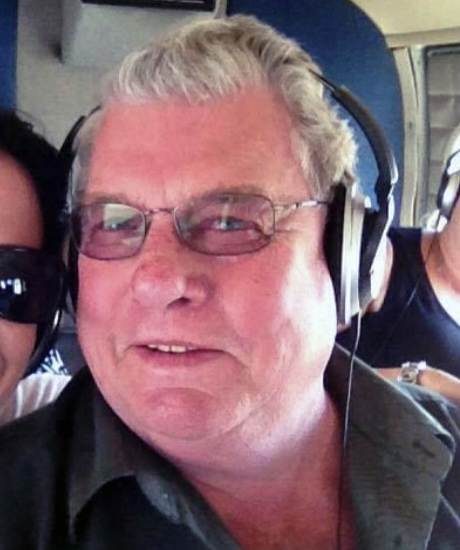 David Flett, father of Shane, Sherrie, Andrew, Tarnia, Teneeka and Katrina, RIP.
David Flett, father of Shane, Sherrie, Andrew, Tarnia, Teneeka and Katrina, RIP.
“Dad was diagnosed 2 weeks before Christmas in 2014 with sporadic MND. It was an unexpected diagnoses and after a 20 month fight against the incurable disease, Dad died in August 2016.”
But not long after Tarnia and Katrina’s dad was diagnosed, and to help others living with MND, Katrina suggested that they raise "a few thousand dollars" over the following year with activities like the Stadium Stomp, a 7,000 stairs climbing challenge at the Sydney Cricket Ground. As it turned out, the sisters very quickly raised much more money.
“We reached our target on our first cake stall and BBQ in our main street. So, from there, we kept doing various fundraisers throughout the year and had over $23,000 raised in that first year.”
Raising money for MND was also a way for the sisters to try and satisfy the wishes of their Dad, and his desire to make a difference. “When we spoke to Dad about initially raising some money, he said he wanted the money we raised to go to research, because without research, there won’t be a cure.”
Sadly, Bec not only lost her father to MND, but her grandfather as well.
“My paternal grandfather died of MND in 2004 and my Dad, Kim Lannin, was diagnosed with MND in June 2016 and passed away in July 2017.”
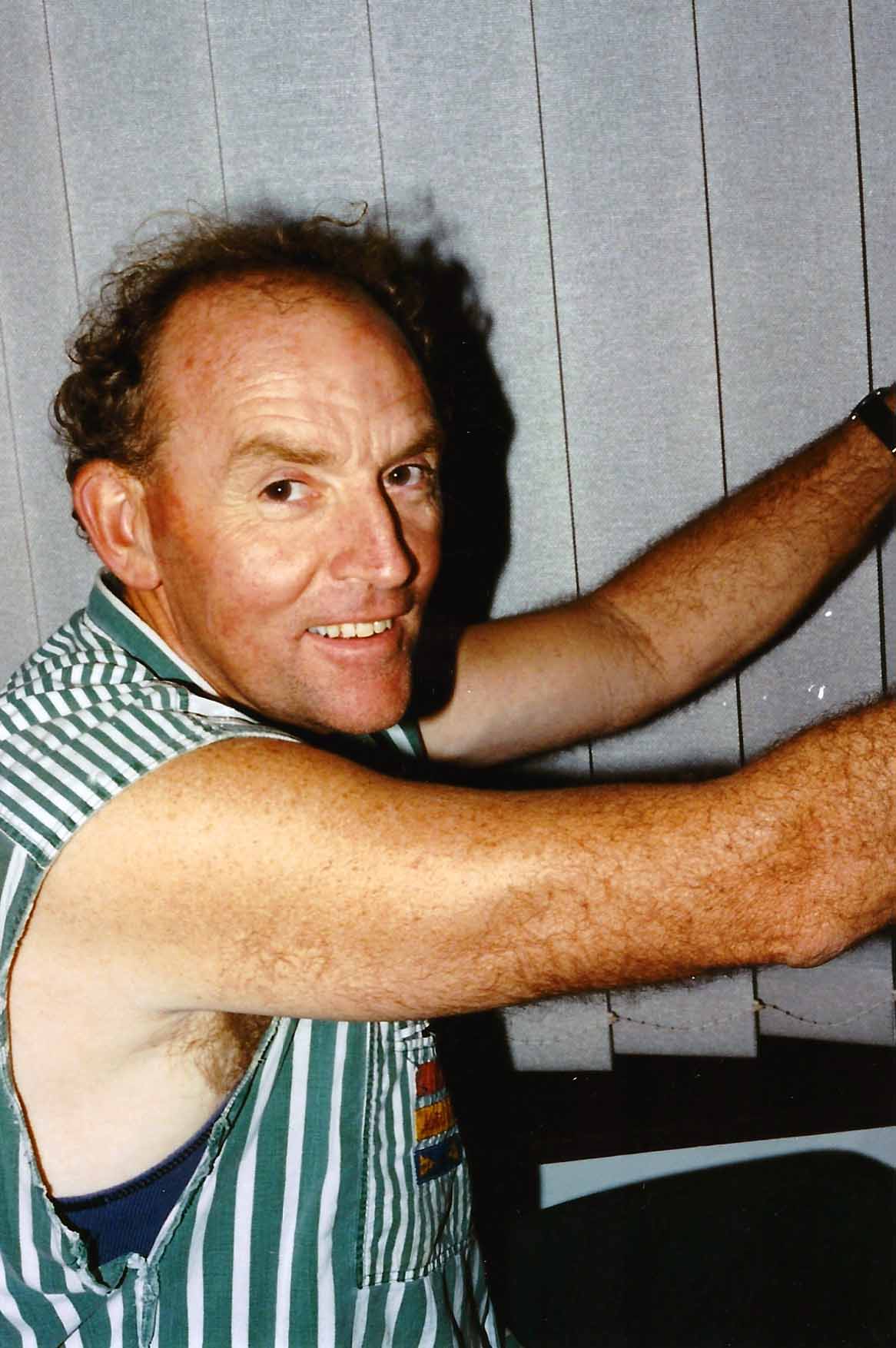 Kim Lannin, father of Bec Lannin, RIP.
Kim Lannin, father of Bec Lannin, RIP.
Bec’s father was a farmer and a dedicated family man. “He loved horses and his family. He lived for my Mum, my sisters and I, and his grandchildren.”
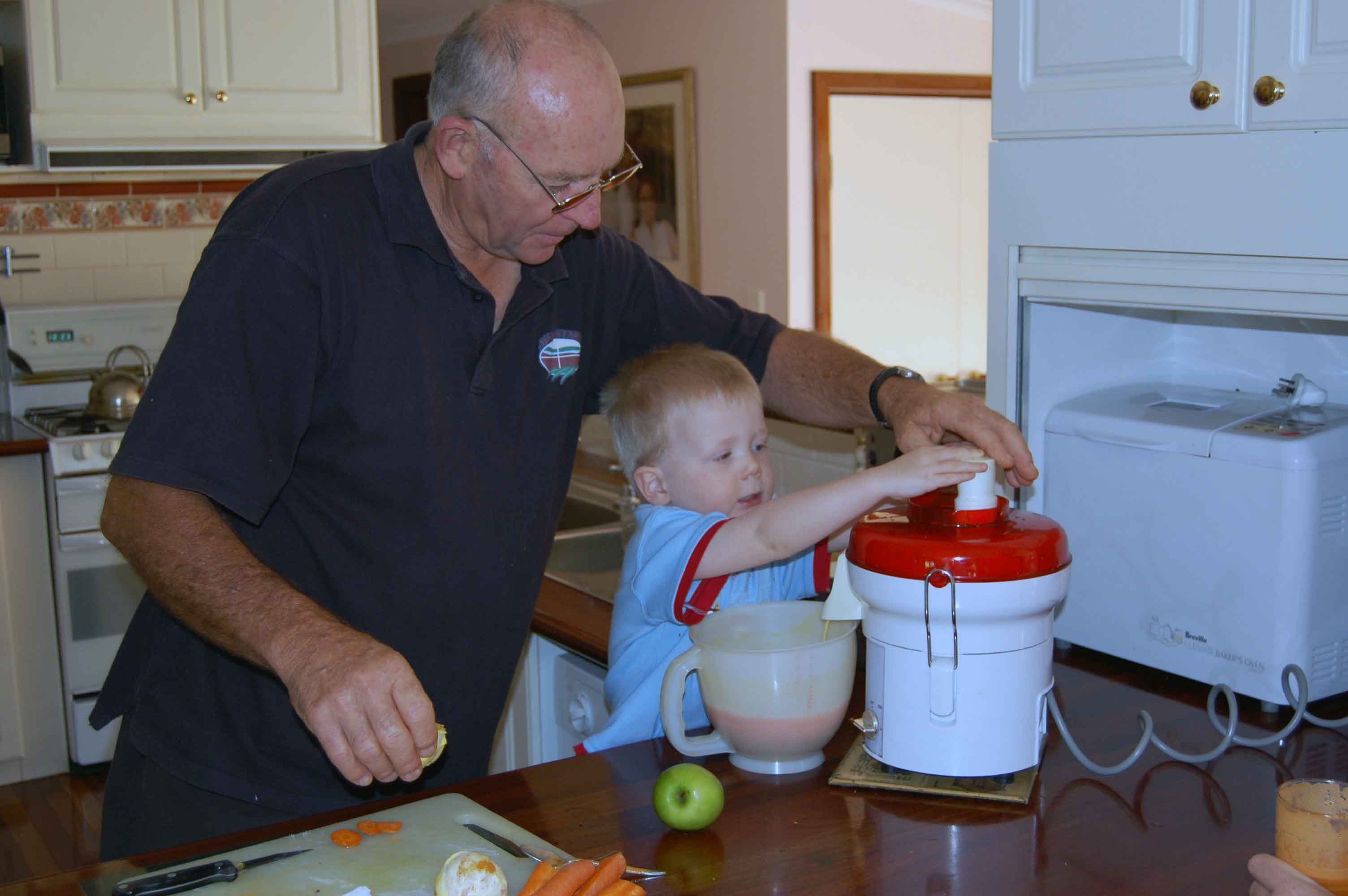 Kim Lannin and his grandson, James.
Kim Lannin and his grandson, James.
Bec explained that during her father’s illness, she saw the work of MND Australia, and the value of research. Becoming a donor meant that Bec could help fund research to help others like her Dad, both in the search for a cure, and in developing knowledge for families to make informed decisions about managing the disease.
“My family and I were able to access information about the disease to better understand what MND does to the body and prepare ourselves for what was to come, although I don’t think anyone can really be prepared.”
Families, loved ones and others in the community can help
One of the great things about being a MND donor is that there are many others in the MND community ready to help out.
Bec prefers to make donations online. Donating online makes it easy to contribute to MND research, and remember her Dad.
“Following Dad’s death, I made the decision to give monthly to MND research,” Bec told us, reflecting on how she started out as a donor. “I set up a monthly direct debit from my bank account to MND Research, following the instructions set out on their website… It was a very easy process.”
There is no pressure on Bec and the online process for donations supports her to be involved in the MND community on her terms. “I receive updates on research and can engage as little or as much as I would like to.”
“I receive updates on research and can engage as little or as much as I would like to.”
Tarnia and Katrina, on the other hand, enjoy coming up with MND fundraisers, and similar events.
“We come up with what we think will work as a good fundraiser and we run with each idea. We promote it on our Facebook page.”
Social media has helped Tarnia and Katrina promote a variety of events in their local community, and find others keen to support them. “We have held cake stalls, bbqs, movie nights, discos, Krispy Kreme donuts, an obst-A-cool event for kids, raffled a car… each year we have run a gingerbread house making day with 180 odd parents and children making and decorating houses.
Making ginger bread houses is not only one of Tarnia and Katrina’s most treasured events, but one she feels is great for those with a sweet tooth. “This was Dads favourite fundraiser because it's all about kids being involved, a lot of laughter …and sugar!”
But what makes a big difference to helping Tarnia and Katrina hold their fundraisers is having the support of family and friends in their community, and a relationship with MND Australia.
“For us because were regionally located, we promote and organise most of our own fundraisers, but having a contact within the MND [community] has been helpful over the years because it gave us a direct link to the organisation we were raising funds for. We are also very fortunate to have very supportive family, friends and local community.”
And while COVID-19 has made fundraising difficult, it hasn’t stopped Tarnia and Katrina.
“Unfortunately COVID-19 prevents us from doing it this year. While smaller [the donation] this year, we will still make our annual deposit to MND Research.”
An enjoyable and compassionate way to support others living with MND
MND is a such a cruel disease, yet Tarnia, Katrina and Bec all find comfort in the fact that being a donor could help make it easier for people living with MND now, and in the future.
Tarnia and Katrina also simply enjoy the experience of spending time with others while organising donations. The experience of helping others living with MND makes them happy in a unique and compassionate way.
“It’s very worthwhile, social and enjoyable. It doesn’t matter how big or small the donation is, it all adds up and is going to – we hope – benefit future families suffering from this disease.”
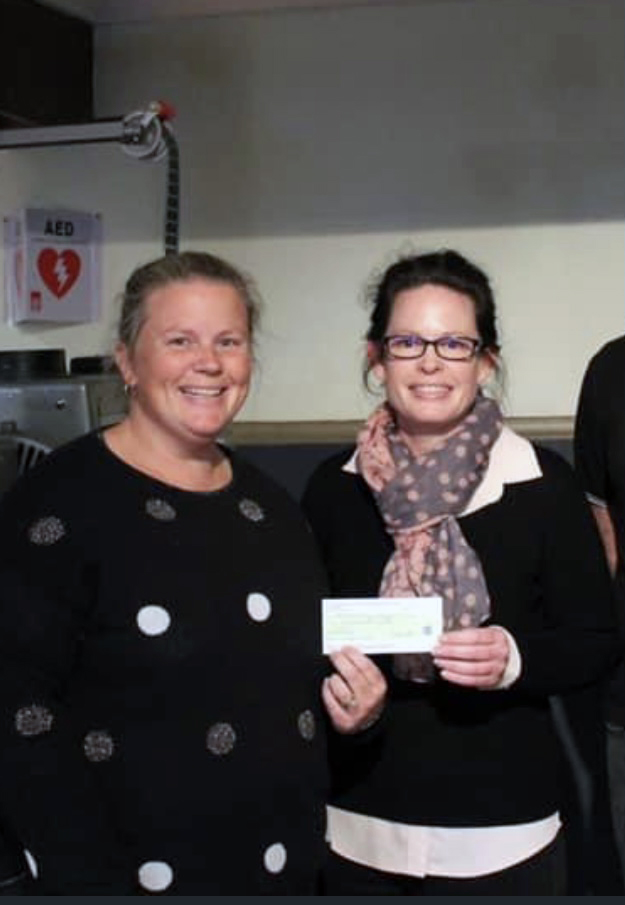 Katrina and Tarnia accepting a cheque.
Katrina and Tarnia accepting a cheque.
For Bec, being a MND donor is her way of supporting a community of researchers, advocates, carers and everyone else doing what they can to build a future without MND.
“I hope that in a small way my contribution will lead to a cure within a couple of generations and at the very least help in improving the quality of life for sufferers over the next 5 to 10 years.”
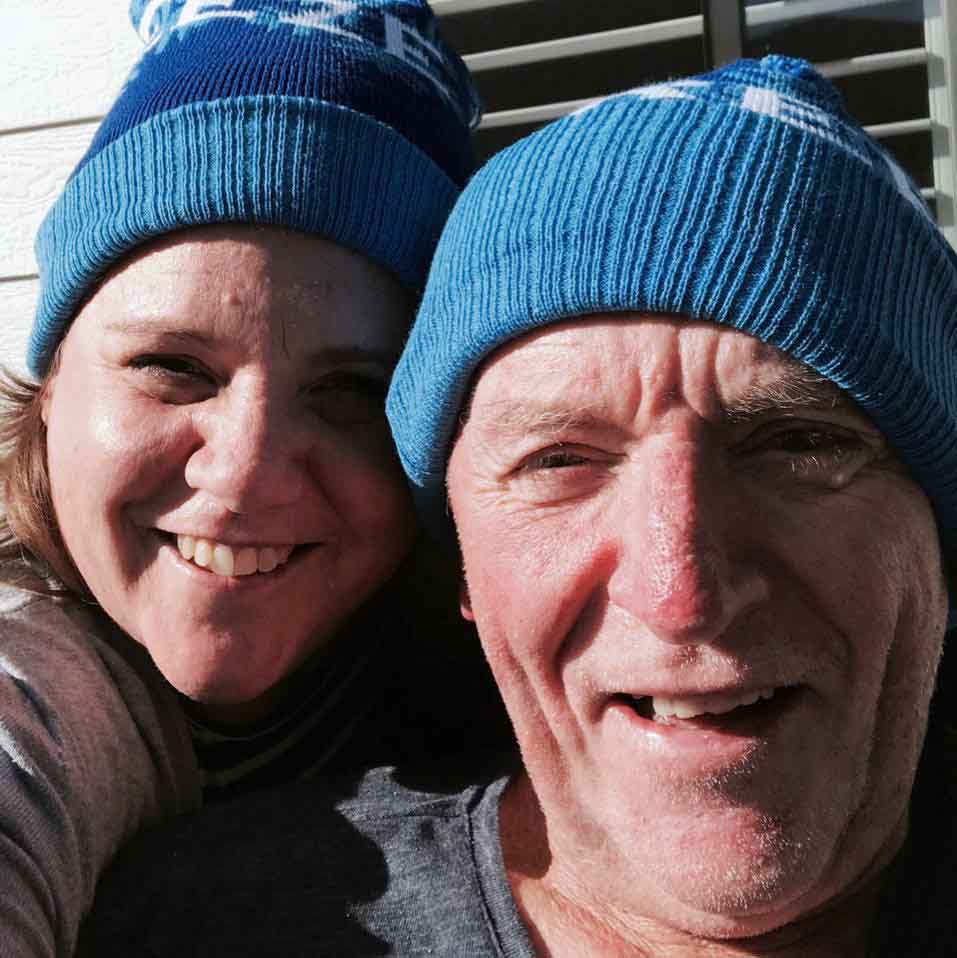 Bec and Kim Lannin.
Bec and Kim Lannin.
Bec Lanin works in International Development to help low and middle-income countries to increase economic growth and reduce poverty, helping remind her of her privileges, and the benefits of her life in Australia. Bec also loves running, marathon swimming and baking. In 2020 she joined the sourdough baking craze, which she tells herself is a healthier alternative to baking cakes.
Tarnia and Katrina Flett enjoy spending time with their family and friends, both near and far. Tarnia and Katrina love a meal, a few drinks and a lot of laughs, and have big families on both their Dad and Mums sides, with their get togethers being regular and always loud, fun and entertaining.


